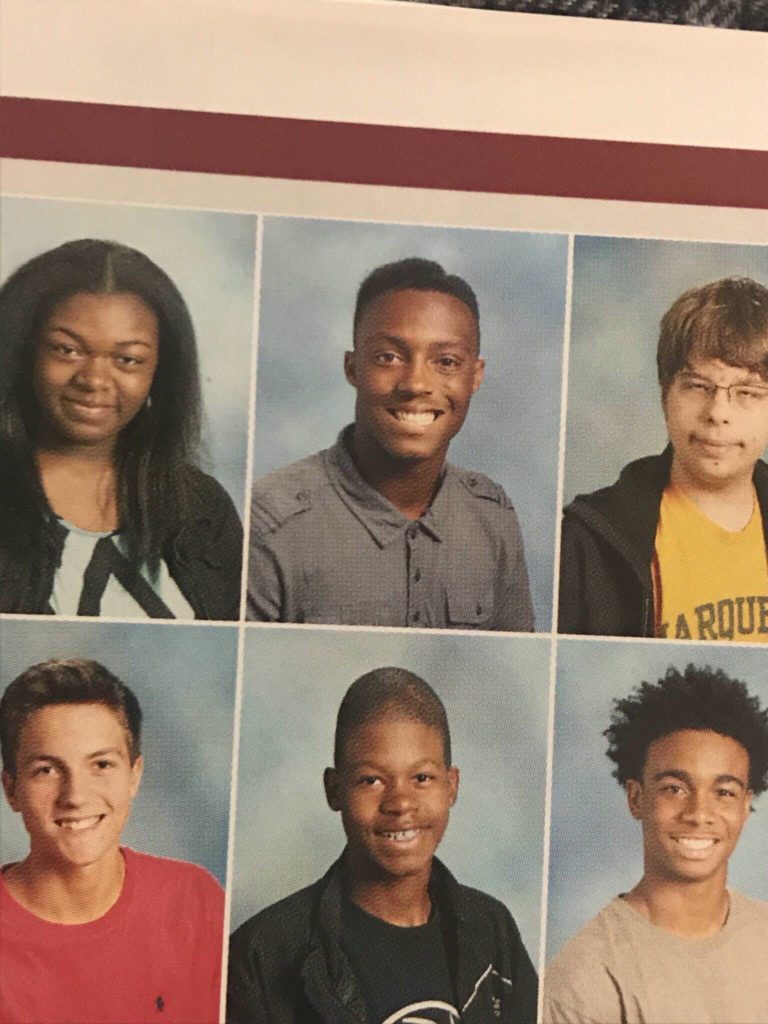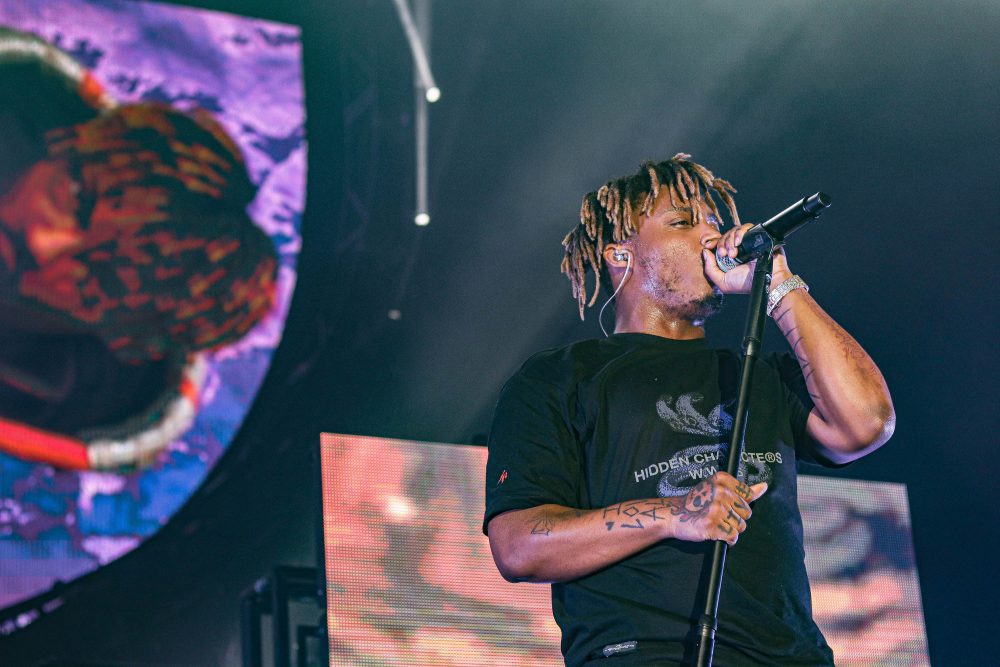Albums:
Goodbye & Good Riddance
December 10, 2018
Death Race For Love
March 8, 2019
Legends Never Die (Posthumous)
July 10, 2020
Mixtapes:
What is Love?
February 9, 2015
Future & Juice WRLD Present… WRLD ON DRUGS
October 19, 2018
EPS:
Juiced Up the EP
January 31, 2016
Twilight Zone EP
July 6, 2016
Affliction
February 17, 2017
Heartbroken in Hollywood 9 9 9
July 15, 2017
JuiceWrld 9 9 9
June 15, 2017
BingeDrinkingMusic
October 29, 2017
Nothings Different
December 22, 2017
Too Soon..
June 22, 2018
Up Next Session: Juice Wrld
July 3, 2018
Awards & Nominations
American Music Awards
– 2020 Favorite Male Artist- Rap/Hip-Hop (Won)
BET Awards
– 2019 Best New Artist (Nominated)
BET Hip-Hop Awards
– 2018 Best New Hip-Hop Artist (Nominated)
Billboard Music Award
– 2019 Top New Artist (Won)
– 2019 Top Hot 100 Song (Nominated)
– 2019 Top Rap Artist (Nominated)
– 2019 Top Streaming Song (Audio) for “Lucid Dreams” (Nominated)
– 2019 Top Streaming Song (Video) for “Lucid Dreams” (Nominated)
– 2019 Top Rap Song for “Lucid Dreams” (Nominated)
– 2020 Top Rap Album for “Death Race for Love” (Nominated)
– 2020 Top Rap Artist (Nominated)
iHeartRadio Music Awards
– 2020 Best Hip-Hop Album for “Death Race for Love” (Won)
MTV Video Music Awards
– 2018 Song of Summer for “Lucid Dreams” (Nominated)
– 2020 Video of the Year for “Godzilla” (Nominated)
– 2020 Best Hip-Hop for “Godzilla” (Nominated)
Juice WRLD's Early Life
Juice WRLD, also known as Jarad Anthony Higgins, was born on December, 2, 1998, in Chicago, Illinois. His home life growing up was very complicated due to his parents splitting up when he was just 3 years old. Being raised solely by his conservative and religious mother, he was never exposed to the hip-hop and rap genres due to his mother’s disapproval. However, he did gain knowledge and experience from listening to pop and rock music through his video games, “such as Tony Hawk’s Pro Skater and Guitar Hero, which introduced him to artists like Billy Idol, Blink-182, Black Sabbath, Fall Out Boy, Megadeth and Panic! at the Disco”. Because of this, he was able to gain an understanding of alternative genres, and he later incorporated this into his craft in his music career. Growing up he began playing the piano, guitar, and drums before entering high school. Higgins uploaded his first song, “Forever”, on SoundCloud in 2015, when he was still a high school freshman. Even though he already released his first song during freshman year, he only started taking rapping seriously in his sophomore year of high school.

Musical Influences:
As mentioned in his early life, Juice WRLD was inspired by rock music and the Chicago drill music. Because of his mother’s disapproval of rap and hip-hop music, he got his musical inspiration from video games like Guitar Hero, where he was able to gain exposure to a variety of instruments like drums, electric guitars, bass guitars, etc. He was also taught to play the piano, and he continued to utilize his talents throughout his music later in his career. Growing up he also was a big fan of rock bands like, Escape the Fate and Black Veil Brides. Within Juice WRLD’s discography, listening audiences are able to hear the influences of rock, pop, and emo/punk music within many of his songs. As he got older, he began to listen to more rappers like, Kid Cudi and Meek Mill, which offered a significant amount of influence on his rap career. Juice WRLD developed his style by combining both influences of rock and rap, further illuminating the genre of emo-rap. This genre is a fusion of rapping and hip-hop-like beats with the lyrical and instrumental characteristics of emo music. Other rappers that can be considered emo-rappers are, Lil Peep, Trippie Redd, Lil Uzi Vert, and more.
Drug Abuse/Social Involvement
In the sixth grade, he began to experiment with drugs and alcohol, like lean and cigarettes, which at such a young age impacted the path of his life drastically. Throughout Juice WRLD’s career, he has been very open and honest about his addiction problem, and he utilized his voice to describe the negative impacts of drug use and addiction to raise awareness. This is quite different from many rappers who discuss drug abuse in positive terms, and a way in which to describe party life.
Juice WRLD was a major advocate for his community of Chicago. Him and his family created a variety of charities and donations to serve his community and help those who are in need. For instance, the rapper teamed up with Genius to raise money for the program “100 Black Men” in Chicago. He also was able to partner with McDonald’s to put on a free concert for his community. Lastly, Juice WRLD was a major advocate against drug addiction amongst the youth. Therefore, his mother, Carmella Wallace, founded a charity called, Live Free 999, which focuses on support for young adults that experience drug addiction, anxiety, and depression. this charity was created after Juice WRLD’s untimely death, to help others who struggle with similar issues.
Juice WRLD's Untimely Death

Throughout Juice WRLD’s musical career, he expressed his struggle with drug addiction, and the ways in which it negatively impacted his life and mental health. Many of his close friends and family discussed that Juice WRLD was finally getting clean and trying to decrease and limit his drug use. Unfortunately, however, on December 8, 2019, Jarad Anthony Higgins passed away due to an accidental overdose on extremely powerful painkillers. These painkillers were oxycodone and codeine, which led him to experience a seizure in Chicago’s Midway International Airport. Although his death was unforeseen, his recording label was still able to release the incredible album, Legends Never Die, which was being worked on by the late rapper. The posthumous album, Legends Never Die, debuted at No. 1 on the Billboard Charts and, “[marked] the biggest posthumous debut in 23 years since Tupac and Notorious B.I.G. posthumously released albums in 1997”.
Conclusion/Discussion
Juice WRLD was an incredible artist who introduced a different sound to the rap industry. Through his instrumental talents of playing the guitar and piano within his rap music, he was able to create a unique discography filled with hit after hit. I also admire his ability to speak on issues regarding drug addiction and mental health throughout his music. His music gave an outlet for so many young adults experiencing similar issues. In addition to his diverse discography, he was a major advocate for his community and assisted so many people in need, which displayed his caring and determined nature. Although his death was unexpected, I believe that he was able to make a significant impact on the music industry, as well as his community.
Bibliography
Asmelash, Leah. Remembering Juice Wrld, One of Emo RAP’S Most Promising Artists. 8 Dec. 2019, www.cnn.com/2019/12/08/entertainment/juice-wrld-legacy-reactions-trnd.
Juice Wrld Awards and Nominations. www.aceshowbiz.com/celebrity/juice_wrld/awards.html.
KLINKENBERG, BRENDAN. “The Tragedy of Juice WRLD.” Rolling Stone, no. 1335, Jan. 2020, p. 28. EBSCOhost, search.ebscohost.com/login.aspx?direct=true&db=a9h&AN=140908575&site=ehost-live.
Caramanica, Jon. “Tragic End Of a Rap Revolution.” New York Times, 10 Dec. 2019, p. C1(L). Gale In Context: Biography, link.gale.com/apps/doc/A608006781/BIC?u=auctr_woodruff&sid=BIC&xid=b56d1dae. Accessed 7 Mar. 2021
Juice Wrld: The Unapologetic Rapper Who Helped Define a New Sound. 8 Dec. 2019, www.theguardian.com/music/2019/dec/08/juice-wrld-death-tribute-emo-rap.
https://www.youtube.com/watch?v=3_0cpVhD_48


